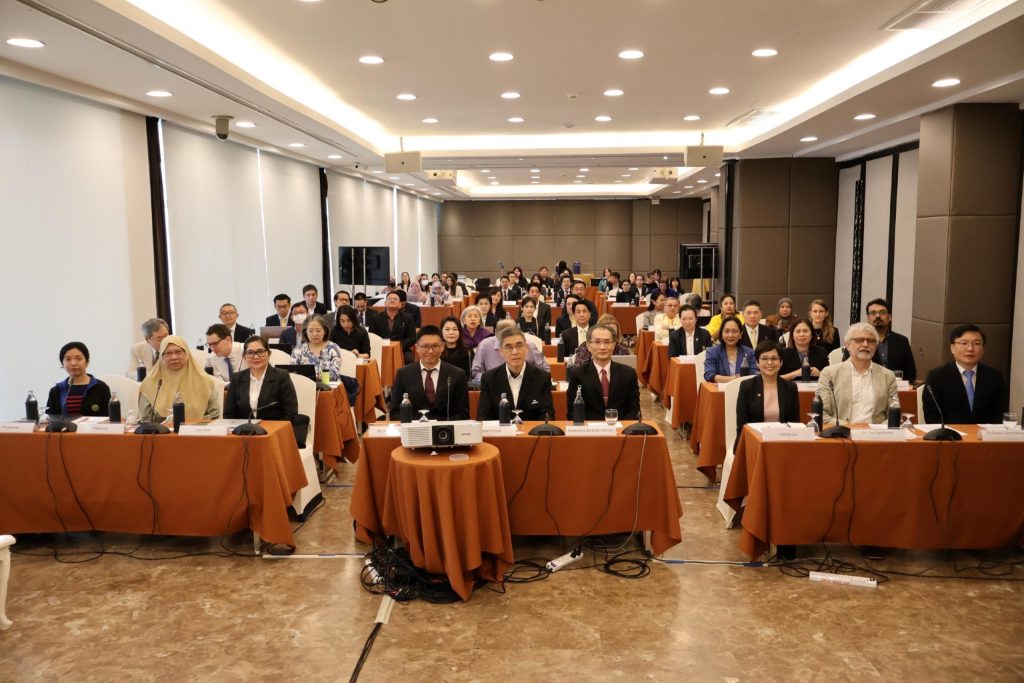ACAI Hosts Consultative Meeting to Shape Five-Year Strategic Plan for Active Ageing in ASEAN

Bangkok, Thailand – The ASEAN Centre for Active Ageing and Innovation (ACAI) successfully hosted the 13th Governing Board meeting and a consultative meeting on February 24-25, 2025, at the Ramada Plaza by Wyndham Bangkok Menam Riverside. Co-hosted with the Economic Research Institute for ASEAN and East Asia (ERIA), the event brought together key stakeholders from ACAI Board members, the ASEAN Secretariat, UN agencies, academic and research institutions, NGOs, and civil society groups to collaborate on ACAI’s first Five-Year Strategic Plan (2025–2029).
The meeting marked a significant step toward strengthening regional cooperation and ensuring sustainable support systems for ageing populations in ASEAN. Day one of the meeting commenced with opening remarks from ACAI’s Governing Board Chair, Dr. Suwit Wibulpolprasert, who emphasised the importance of collective efforts in advancing active ageing policies. Remarks from Thailand’s Ministry of Public Health, WHO, and ERIA further underscored the need for multi-sectoral collaboration.
The first day’s sessions explored key themes such as demographic transitions across ASEAN, with UNFPA providing insights into the varying stages of population ageing in different member states. WHO highlighted the UN Decade of Healthy Ageing and the necessity of integrating long-term care into national policies. Presentations from ADB and ERIA examined investment opportunities in ageing societies, while discussions also focused on best practices from Japan’s long-term care model and community-based healthcare approaches.
ACAI used this opportunity to share ACAI’s five core missions: knowledge centre, policy support, capacity building, research & innovation, and progress monitoring. Another presentation from HelpAge International, Japan’s National Institute of Population and Social Security Research (IPSS), NUS, HITAP, and Mahidol University highlighted climate and demographic change, ASEAN Active Ageing Index (AAAI), life-course cohort for intergeneration approach, Happy Retirement, and infrastructure and referral systems.
On the second day, ACAI held a partner dialogue session to address ACAI’s evolving role as a connector, knowledge hub, facilitator, and monitor for regional initiatives. Key concerns raised included funding sustainability, policy implementation gaps, and the need for a regional ageing index to track progress.
The private ACAI Governing Board meeting followed, where the Board members reaffirmed their commitment to ensuring that ACAI remains a central platform for knowledge exchange and policy innovation in the ASEAN region.
As the meeting concluded, stakeholders expressed their willingness to continue collaboration, with ACAI set to refine its strategic plan based on expert recommendations. With an ageing population rapidly transforming ASEAN societies, the outcomes of this consultative meeting will play a crucial role in shaping a resilient and inclusive future for older persons across the region.
